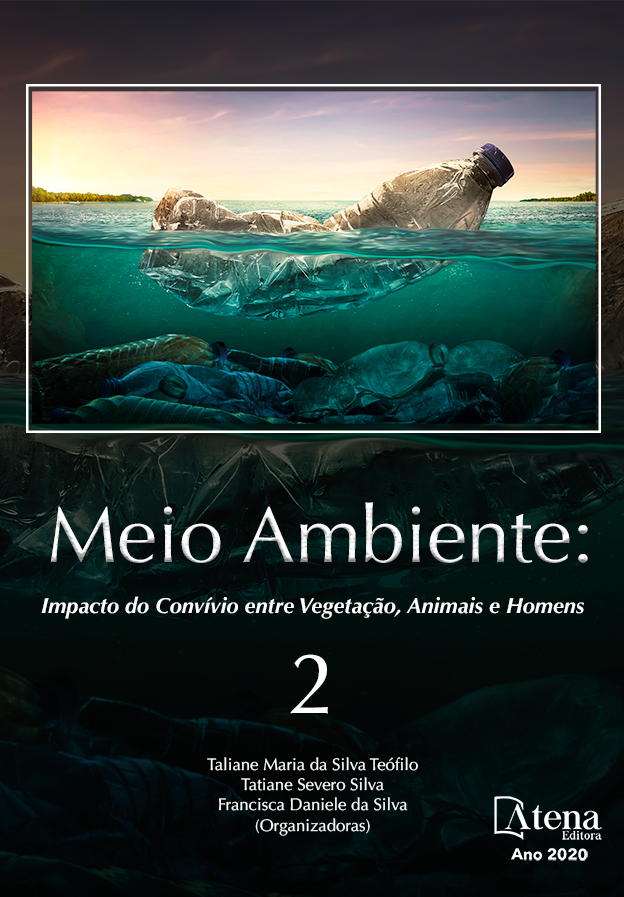
ENSINO-PESQUISA-EXTENSÃO NA FORMAÇÃO INTEGRAL - EXPERIÊNCIAS DO CURSO DE OCEANOGRAFIA DA UNIVERSIDADE DO VALE DO ITAJAÍ
A indissociabilidade entre o Ensino, a Pesquisa e a Extensão como eixo norteador e fundamental da Universidade no Brasil, mesmo amparada pela Constituição Brasileira de 1988, é ainda uma tarefa árdua e distante de ser alcançada. Muitas instituições ainda priorizam um dos três eixos, em detrimento dos demais, ou se trabalham uma relação dual, com dificuldades para a complementação deste tripé. Este desequilíbrio é resultado de uma herança histórica da formação universitária brasileira onde o conhecimento científico tornou-se um conhecimento privilegiado para a vida em sociedade contemporânea. A fragmentação se distancia da formação integral do estudante e da missão fundamental de uma universidade, e portanto, precisamos refletir sobre a necessidade urgente da integração dos saberes, assim como da integração entre ensino-pesquisa-extensão e o seu impacto na formação que parta das necessidades e expectativas do sujeito e de suas relações pessoais, com o outro e o meio. Trazendo à luz da sustentabilidade ambiental, a fragmentação reflete numa sociedade totalmente desconectada do meio ambiente, com uma vida insustentável, consumista, egóica e descartável, em todas as suas relações, com ele próprio, com o outro e com o meio, resultando nesta atual situação, sem precedentes. Assim, este estudo traz algumas experiências de sucesso observadas junto ao Curso de Oceanografia da UNIVALI. Experiências que surgiram na prática, a partir das vivências imersas em uma comunidade estudantil e popular que anseiam por uma formação interdisciplinar e humanista numa perspectiva, crítica, emancipatória e transformadora, capaz de ampliar a autonomia para a sua autotransformação e a transformação do outro e do meio em que vive, ou seja, na sua transdisciplinaridade.
ENSINO-PESQUISA-EXTENSÃO NA FORMAÇÃO INTEGRAL - EXPERIÊNCIAS DO CURSO DE OCEANOGRAFIA DA UNIVERSIDADE DO VALE DO ITAJAÍ
-
DOI: 10.22533/at.ed.82520131013
-
Palavras-chave: Interdisciplinaridade; Pertencimento; Alteridade; Conhecimento; Conhecimento Sensível.
-
Keywords: Interdisciplinarity; Belonging; Otherness; Sensitive knowledge; Intelligible knowledge.
-
Abstract:
The indissociability between Teaching, Research and Extension as the guiding and fundamental axis of the university in Brazil, even supported by the Brazilian Constitution of 1988, is still an arduous and distant task to be achieved. Many institutions prioritize one of the three axes, to the detriment of the other ones, or work in a dual relationship, with difficulties to complement this tripod. This asymmetry is the result of a historical legacy of Brazilian university education where scientific knowledge has become a privileged knowledge for life in contemporary society. Fragmentation is far from the integral formation of the student and the fundamental mission of a university, and therefore we need to reflect on the urgent need for the integration of knowledge, as well as the integration between teaching-research and extension and its impact on the formation that starts from the needs and expectations of the subject and its relationships, as the other and the environment. Bringing to the light of environmental sustainability, fragmentation reflects into a society disconnected from the environment, with an unsustainable, consumerist, egoic and disposable life in all its relations, with itself, with the others and with the environment, resulting in this current unprecedented situation. Thus, this study brings some experiences of successes observed at UNIVALI Oceanography Course. Experiences that have emerged in practice, from the immersed experiences in a student and popular community that yearn for an interdisciplinary and humanistic formation in a critical, emancipatory and transforming perspective, capable of expanding the autonomy for its self-transformation and the transformation of the other and of the environment in which it lives, that is, transdisciplinarity.
-
Número de páginas: 15
- Camila Burigo Marin
- Ana Lúcia Berno Bonassina
- José Matarezi
- Manoela Tormen Criveletto Canalli Pacheco
- Katia Naomi Kuroshima


